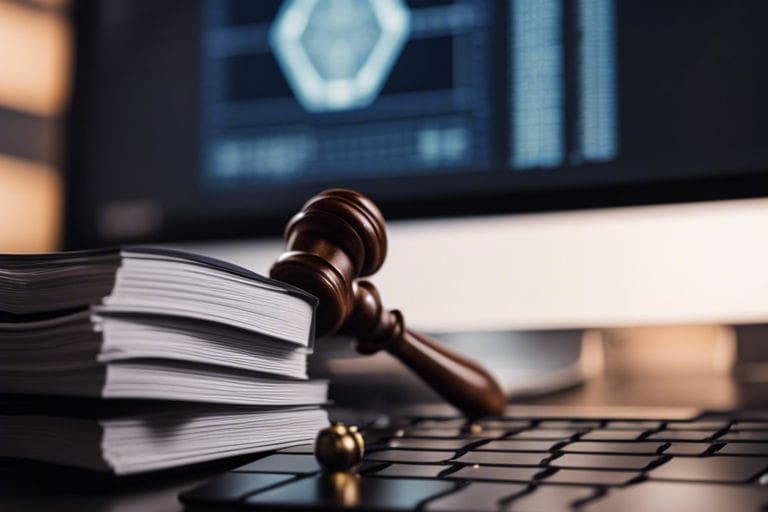Data protection is a crucial aspect of navigating the digital landscape. In a world where personal information is increasingly vulnerable, understanding the legal steps to safeguard your privacy is paramount. From knowing your rights under data protection laws to utilizing privacy-enhancing technologies, proactive measures can shield your personal data from malicious actors. Let’s explore into the legal strategies and tools available to protect your online privacy effectively.
Legal Frameworks
International Regulations
For international regulations, organizations need to comply with laws like the General Data Protection Regulation (GDPR) in Europe and the California Consumer Privacy Act (CCPA) in the United States. These laws outline strict guidelines for handling personal data and require organizations to implement strong security measures to protect this information.
National Laws and Policies
To navigate national laws and policies, businesses must stay informed about regulations specific to the countries they operate in. Compliance with these laws is crucial to avoid hefty fines and maintain consumer trust.
It is imperative for companies to appoint data protection officers, conduct regular audits, and provide employee training on data handling practices to ensure adherence to these regulations.
Data Protection Strategies
Encryption and Anonymization
While online, it is crucial to protect your personal data through encryption and anonymization. Encryption converts your data into a code to prevent unauthorized access, while anonymization hides your identity by replacing identifying information with generic terms.
Secure Data Storage and Transfer
Secure your personal data by utilizing trusted storage solutions and encrypted communication channels. The use of secure servers and encrypted email services ensures that your data remains protected from cyber threats.
The implementation of secure data storage and transfer protocols is crucial in safeguarding sensitive information against hacking attempts and unauthorized access.
Privacy Rights and Obligations
Individual Rights to Data Protection
Rights to data protection are necessary for individuals in the digital age. These rights empower individuals to control their personal information and decide how it is collected, processed, and shared. Regulations such as the GDPR in Europe give individuals the right to access their data, correct inaccuracies, and even request its deletion.
Corporate Responsibilities and Liabilities
For corporations, protecting customer data is not just a best practice, but a legal obligation. Companies must safeguard personal information from breaches and unauthorized access. Failure to do so can result in severe penalties and reputational damage. Privacy policies, data encryption, and employee training are crucial in fulfilling these responsibilities.
Data breaches can lead to significant financial losses, lawsuits, and damage to a company’s reputation. On the flip side, compliance with privacy regulations can enhance customer trust and loyalty, setting a company apart in the market. It is imperative for businesses to prioritize data privacy to avoid legal repercussions and maintain a positive brand image.
Implementing Privacy Measures
Privacy by Design and Default
Your first step in protecting personal data is to implement Privacy by Design and Default. This approach ensures that privacy measures are embedded into the development of systems and services from the outset, by default.
Data Breach Response and Notification
Breach your data breach response plan is crucial. In the event of a breach, swift and effective action must be taken to minimize the impact. Notification to affected individuals and relevant authorities is also vital.
With proper planning and training, organizations can respond to data breaches efficiently, reducing potential harm and maintaining trust with their customers. Implementing thorough monitoring systems and establishing a clear chain of command during a breach are critical components of a successful response.
Conclusion
As a reminder, safeguarding personal data online is crucial in today’s digital age. By understanding and implementing legal measures such as utilizing secure passwords, enabling two-factor authentication, and being cautious about sharing information online, individuals can protect their privacy effectively. Stay informed, stay vigilant, and take the necessary steps to secure your personal data online.
FAQ
Q: What are some legal steps to protect personal data online?
A: To protect your personal data online, you can take several legal steps such as reviewing privacy policies, using strong passwords, enabling two-factor authentication, and being cautious about sharing personal information.
Q: How can I ensure my online privacy is secure?
A: Ensuring your online privacy is secure involves utilizing privacy settings on social media platforms, being mindful of the information you share online, regularly updating your software and antivirus programs, and avoiding clicking on suspicious links or emails.
Q: What are the potential risks of not protecting personal data online?
A: Not protecting your personal data online can lead to identity theft, financial fraud, invasion of privacy, exposure to cyber threats, and potential reputation damage. It is vital to implement legal steps to safeguard your personal information online.
Type of Attorney and How to Find Them on Attorneys.Media
For addressing legal issues related to online privacy and the protection of personal data in special education, it is advisable to seek the expertise of an attorney specializing in privacy law and education law. These legal professionals are well-versed in the regulations and compliance requirements necessary to safeguard sensitive information in educational settings.
To find an attorney specialized in this area, you can use the comprehensive directory on Attorneys.Media. Start by visiting the website and navigating to the “Privacy Law” or “Education Law” categories. Here, you will find profiles of attorneys who focus on these specific legal issues. Each profile includes detailed information about the attorney’s background, areas of expertise, and contact details.
When selecting an attorney, consider their experience in handling cases involving online privacy and special education. Look for reviews and testimonials from previous clients to gauge their effectiveness in providing legal guidance and protecting personal data. By utilizing the resources on Attorneys.Media, you can ensure you are choosing a qualified attorney who can help navigate the complexities of privacy laws in the education sector.
Attorneys.Media Video Document References
- Is Personal Injury Part of Your Law Practice?
- As an Attorney, How Are You Generating Content for Your Online Presence?
- How Can You Help Potential New Clients Get Their Questions Answered?
- How Do You Differentiate Yourself When Someone Looks Online for Help?
- How Do You Differentiate Yourself as a Criminal Defense Attorney?
- Have You Been Thinking About Video Marketing for Your Law Firm?
- Should Attorneys Use Video Marketing to Attract New Clients?
- What Do Potential Clients See When They Research Your Name Online?
- How Attorneys.Media Can Help You




















